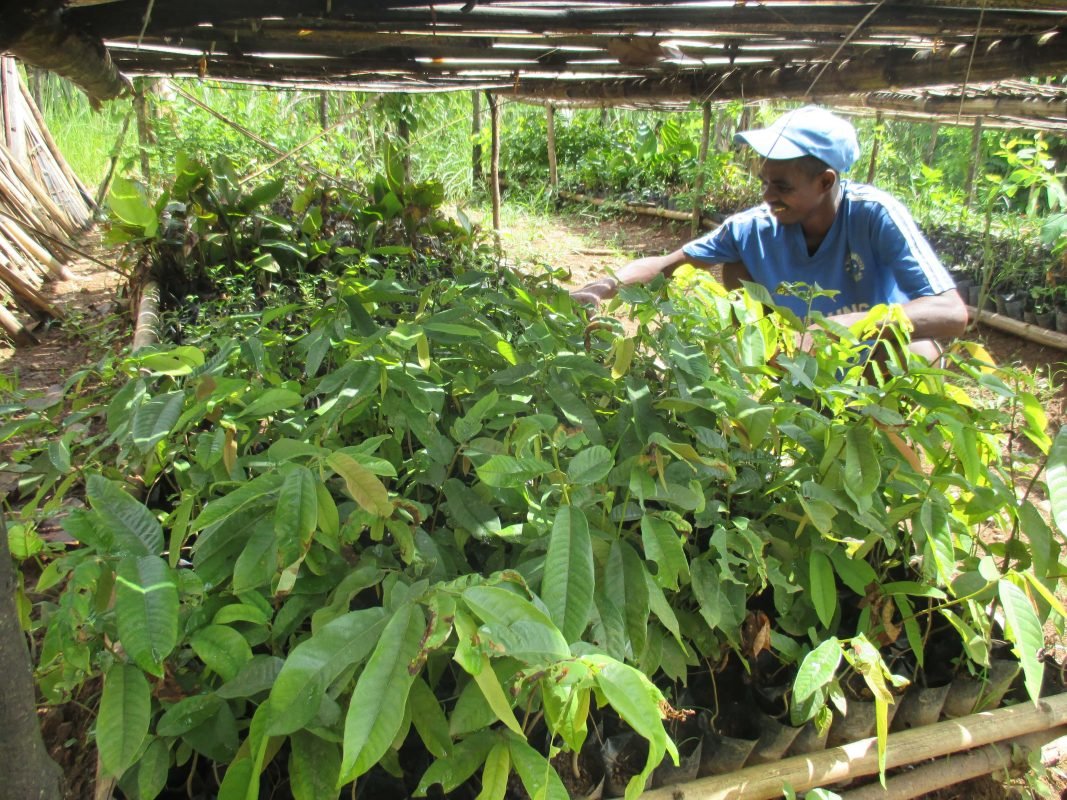The overriding challenge of our time
This is an edited version of Roger Leakey’s article. You can read the full version here.HRH Prince Charles, the Patron of ITF, recently launched the Great Reset Project. Its urgent mission is to make our economic and social system fair, sustainable and resilient. At the launch, HRH Prince Charles said this:
“In order to secure our future and to prosper, we need to evolve our economic model and put people and planet at the heart of global value creation. If there is one critical lesson to learn from this crisis, it is that we need to put nature at the heart of how we operate. We simply can’t waste more time”.
But how do we make this change, at scale, while meeting the nutritional needs of a growing and increasingly vulnerable population? Well, this is what ITF does. Our partners can show us how.
The special role of trees
The improvements in agriculture over last 60-70 years came with what are often described as ‘inevitable trade-offs’, such as wildlife habitat and biodiversity loss, large scale land degradation, depletion of water resources, and the domination in agriculture of industrial techniques like monocropping. This is entirely unsustainable, and is certainly not inevitable.
Food security is possible with sustainable agricultural techniques. And many ITF partners are showing us how: how trees/ agroforestry can help to transform community level agriculture into a system that puts “people and planet at the heart of global value creation”. Partnerships such as Agrointroductions in Ghana are showing how shifting to agroforestry techniques, even in semi-arid regions, can reverse land degradation and increase farm productivity. Using agroforestry, farmers can reverse the natural losses modern agricultural techniques have caused, and break the cycle in which poverty drives land degradation, and land degradation drives poverty.
You can read a more in-depth version of this article here. In summary, with agroforestry the farmer benefits from diversifying and enriching their land with some of the hundreds of tree species that produce locally useful and marketable food and non-food products. Restored land creates various ecological niches above and below ground, for colonising organisms that promote the proper functioning of life cycles and food chains. This diversity is critical for the maintenance of a balanced scape, and l that self-regulates pests, weeds, and diseases.
Agroforestry’s potential
As a global community, we have not yet scratched the surface of agroforestry’s potential to help create a fairer, more sustainable and resilient agroeconomy. Worldwide, there are thousands of species across all environments that produce edible products. Many of these products are important in local markets around the world and they have great potential as new crops. Over the last 25 years, more than 50 of these species have become the focus of research implemented in collaboration with local farmers, so that they can benefit from their own innovations.
Recently, ITF launched seventeen community-based tree planting partnerships in Africa with the financial support of the Prince of Wales’s Charitable Fund, across seven countries . In Kenya, for example, the Muliru Farmers conservation Group ‘Trees for Sustainable Development Project’ will reduce pressure on local forest, by planting 31,330 agroforestry, indigenous and fruit trees with local farmers, to meet daily needs and provide sustainable sources of income. And in doing so, breaking the link between poverty and land degradation.
How you can help
HRH Prince Charles is certainly right, and millions of us share the Great Reset Project’s ambition. ITF’s contribution, with your support, is to try to answer to the ‘how’ question. Every day, we show how farmers put “nature at the heart of how we operate”.
Adoption of the techniques we’ve outlined here, at the scale required to change the system, requires a major increase in support and ambition of policy makers and donors. It requires a change in mind-set. And this is where you can help: ask questions, share our stories with people, spend time with nature, and support our work.
Donate Today
Support communities on the front lines of the climate crisis to plant trees, restore ecosystems and improve their livelihoods.


